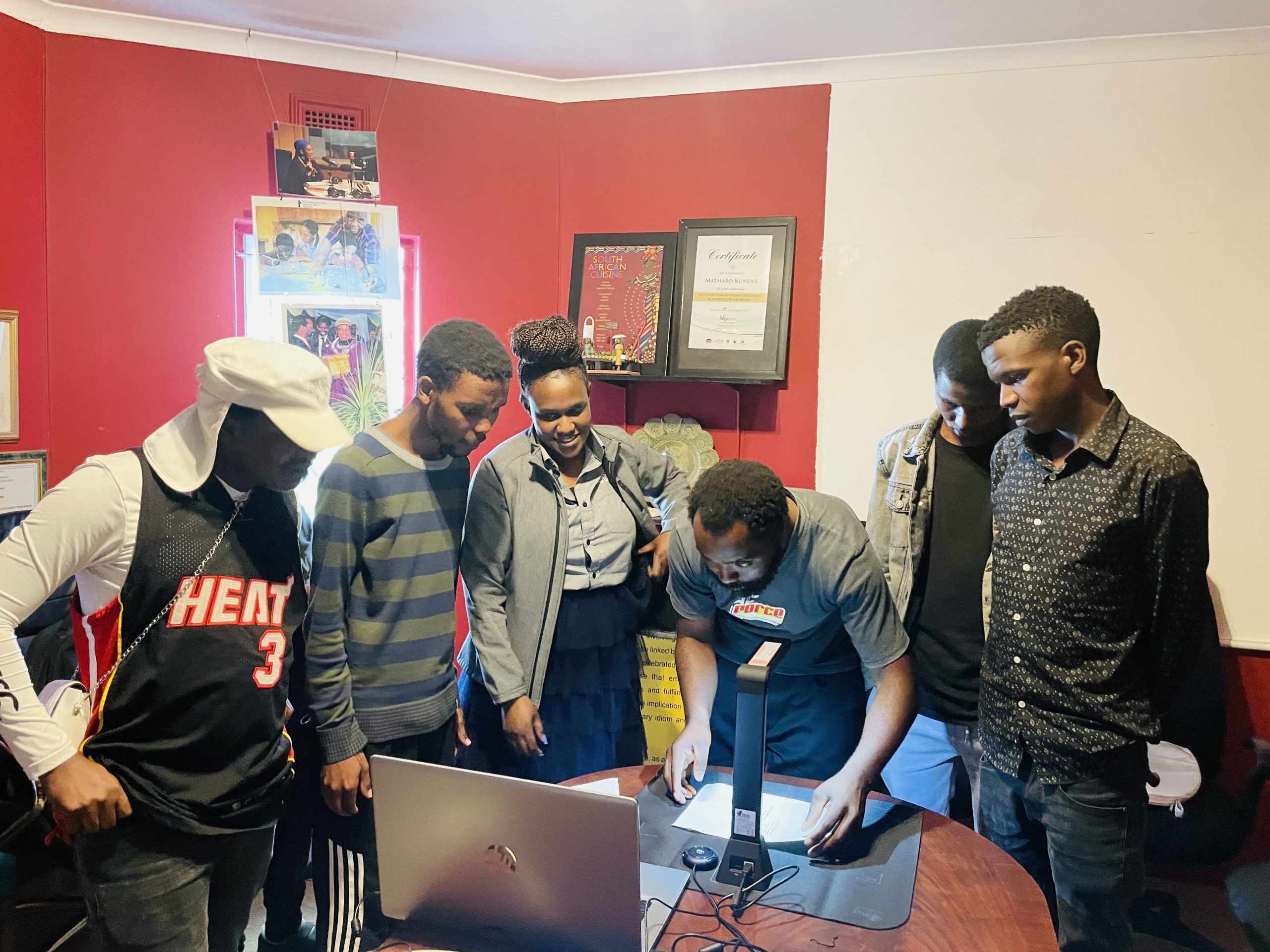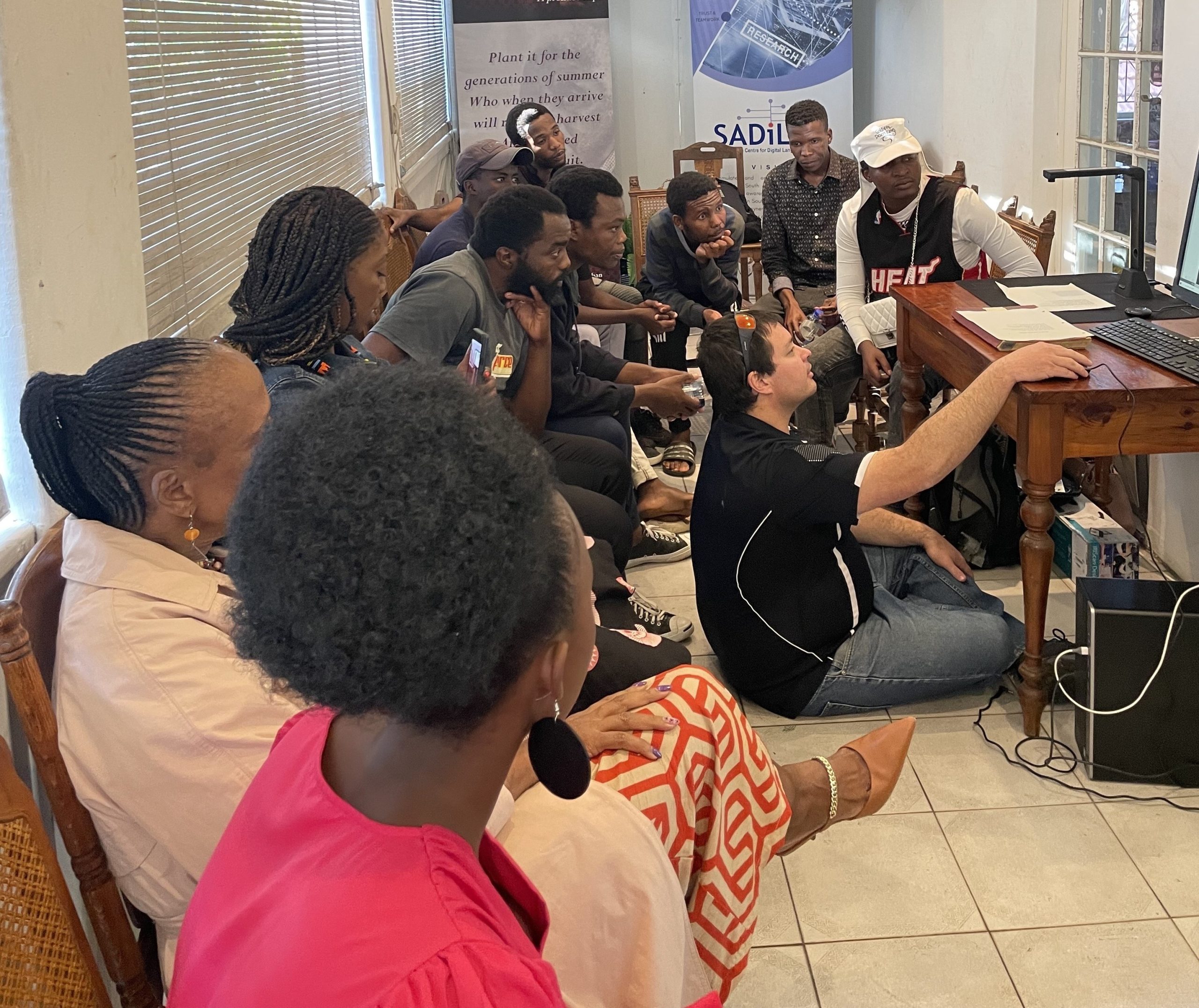In today’s rapidly advancing digital age, the preservation and accessibility of historical artifacts and manuscripts have become paramount. The South African Centre for Digital Language Resources (SADiLaR) recently organised a digitisation workshop at the Mazisi Kunene Museum in Durban. Led by digital humanities researchers Rooweither Mabuya and Andiswa Bukula, and SADiLaR’s Director of Operations, Juan Steyn, the aim of the workshop was to guide museum staff and stakeholders through the process of digitising their precious manuscripts.
The Mazisi Kunene Museum is a cultural institution dedicated to commemorating the life and work of renowned poet and philosopher, Mazisi Kunene. It is home to a vast collection of invaluable manuscripts and artifacts that offer a glimpse into the rich cultural heritage of South Africa. However, these delicate materials were at risk of deterioration and limited accessibility due to their physical nature.
Understanding the urgency to preserve these historical treasures for future generations, the workshop’s facilitators, Mabuya, Bukula and Steyn, introduced the concept of digitisation. They showcased how modern technology could breathe new life into old manuscripts, making them accessible to a global audience.
The facilitators guided the participants through a step-by-step digitisation process. They demonstrated the proper handling of manuscripts, emphasising the need for utmost care and caution during scanning. The workshop attendees learned about file formats, resolution settings, and metadata management, enabling them to create comprehensive digital archives.
Digitisation promotes collaboration and knowledge sharing by facilitating the exchange of digitised materials with other museums and institutions. It further enhances accessibility by enabling researchers, scholars, and enthusiasts from around the world to study and appreciate these historical works remotely.
Preserving cultural heritage through modern technology
One of the significant highlights of the workshop was the handover of a scanning device, the IRIScan Desk 5 Pro, along with a desktop computer. This equipment will serve as a vital tool in the digitisation process, allowing the museum to efficiently convert its manuscripts into high-quality digital formats. The scanner’s advanced features, such as automatic page-turning detection and image enhancement, will ensure the preservation of the original manuscripts’ integrity while capturing every detail with precision.
The Mazisi Kunene Museum’s commitment to digitisation signifies a promising future for the preservation and accessibility of cultural heritage. The workshop participants were encouraged to continue the digitisation efforts beyond the event, ensuring a sustainable and comprehensive digital archive. The museum plans to engage in partnerships and collaborations to expand its digital presence and explore innovative ways to engage audiences with the digitised collection.
The digitisation workshop at the Mazisi Kunene Museum served as a milestone in the journey towards preserving and promoting cultural heritage through modern technology. With the guidance of experts and the provision of advanced equipment, the museum staff and stakeholders are well-equipped to embark on a transformative digitisation journey.
(Written by Rooweither Mabuya)



